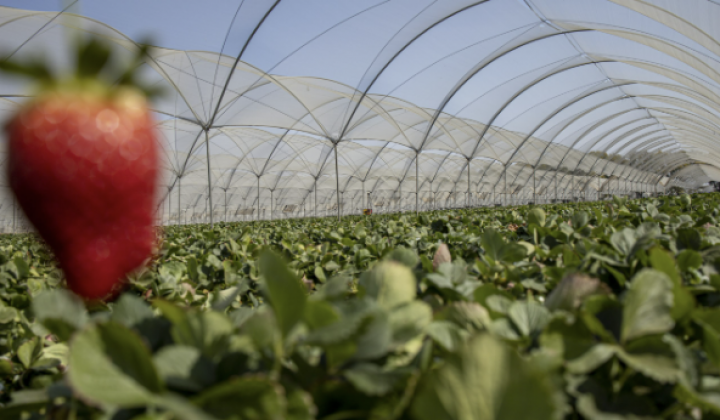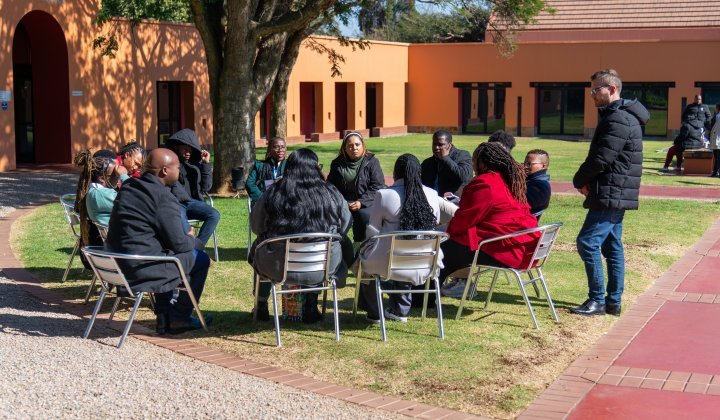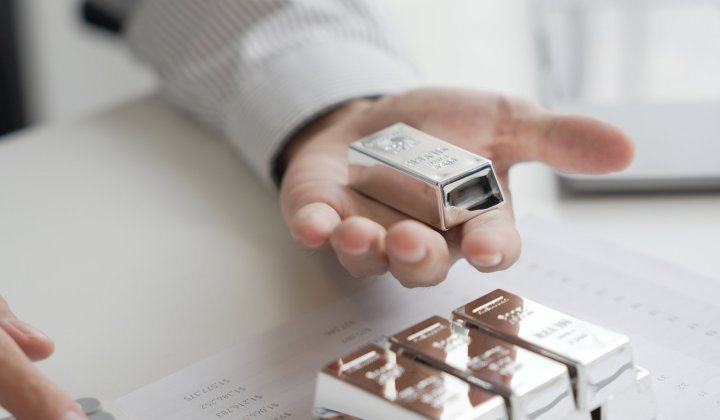The biggest single contribution we as humans can make towards a more sustainable future is to adopt a circular economy, where we aim to eliminate waste and promote sustainability through reuse and resource efficiency.
I recently re-read Yvon Chouinard’s classic, Let My People Go Surfing. Twenty years after I first delved into its pages, the book – originally intended as a "business manual" for the employees at Patagonia, Inc. – is still as relevant as when he started penning the rough draft more than three decades ago.
Chouinard recounts the story of how he navigated an adventurously alternative life, growing up as a scrawny kid from Quebec before eventually becoming a reluctant billionaire and CEO to a globally respected clothing and equipment retailer. We all know this company as Patagonia, and it has since become one of the most respected and recognised brands in the outdoor industry.
Chouinard first discovered the “dizzying thrill” of scaling sheer rock faces with the Southern California Falconry Club, a pursuit that led to an all-out obsession with climbing. Mountains became a gateway to his holy communion with nature, and as his climbing progressed, he began to manufacture his own equipment.
“Tinkering with pitons” led to experimentation with reusable climbing hardware, and this enabled him and his friends to climb without defacing their Alpine backyard. This was the origin story of Chouinard Equipment, a company that soon branched out into apparel. Chouinard decided to re-brand the apparel as Patagonia, a name evoking the harsh beauty and dramatic conditions they endured on their adventures.
The name may have changed, but the overall vision remained resolute: to design and manufacture functional, durable clothing built for the outdoors. Chouinard took issue with being in the "business of fashion", though, because consumptive trends led to rampant materialism and uncurbed wastage.
“We were churning out clothes, and people were buying them on impulse, discarding them just as quickly. It went against everything I believed in — respecting nature and using resources wisely”, he explains. This became a Rubicon moment for him and his management team at Patagonia.
Together, they made the radical decision to donate one percent of proceeds from all sales towards grassroots environmental activism. “It wasn’t just about charity; it was about taking responsibility: we were a company built on nature’s bounty, and we had a duty to protect it.”
Despite a rocky period, this foresight paid off and Patagonia went on to broaden its sustainability vision, setting best-practice benchmarks for all future outdoor retailers. It started sourcing organic cotton and recycled materials, used organic, non-toxic dyes, and focused on creating fair trade partnerships.
Chouinard’s vision was to challenge wider wasteful practices and thereby negate the endless cycle of trends and disposability. Slowly the tide began to turn, and a young generation of consumers came to value experiences over possessions.
Patagonia’s lifetime guarantee meant you could take your garment into any store to have it fixed free of charge, and wearing a 10-year-old parka became a badge of honour. These days, a vintage Patagonia jacket may sell for ten times its original price, and the brand actively encourages its customers to buy less of its own product.
The ultimate step came in 2022. Chouinard restructured Patagonia – worth more than $3 billion – and transferred ownership to a trust dedicated to environmental upliftment. “Every dollar not reinvested back into Patagonia will be distributed as dividends to help protect the planet through Patagonia Purpose Trust and Holdfast Collective, respectively”, the company said in a statement.
Read more at www.patagonia.com.
A South African sustainability story
Whether you like it or not, each and every one of us has an environmental footprint. Generally, the larger the corporations, the bigger those feet, and the more difficult it will become to stop them from stomping their way across the planet, kicking up dust and contributing to escalating environmental destruction.
When you’re facing these industry Goliaths, it seems unlikely that a single individual would be able to curb these destructive processes. Every now and then, however, an ordinary guy like Mike Schlebach will come along and put their hand up – and as part of the process help change how we collectively contribute to sustainability.
Mike Schlebach is, in a lot of ways, a South African Yvon Chouinard. “I was always that goofy kid picking up litter at birthday parties,” he smiles. “It probably had a lot to do with growing up in a sleepy beach village, always paddling out to the backline, with the Cape Fold ranges as a glorious backdrop.”
He was also an early adopter of the idea of a local open-source circular economy and – like the founder of Patagonia – his love for the environment became the essence of a life connected to the planet in every way. “As a waterman and big wave surfer, nature has forever fed my soul, and I still draw from that daily. It’s hard to explain in words, but I feel compelled to give back,” he says.
Mike’s resumé speaks for itself, and he was the key force in establishing a range of sustainability-focused companies, including Re-Sails, as well as the premium Sealand Gear. Mike is also a long-standing Patagonia ambassador, and he certainly walks the talk.
“As you can see, forty years later and here I am, still trying to clean up other folk’s discarded chips packets like during my childhood; just on a much grander scale,” smiles Schlebach. A “complicated separation” from Sealand Gear meant he needed a new focus, and founding OpenSource Circular was in many ways an inevitability.
This is a company that describes itself as “an innovative manufacturing outfit specialising in making high-quality, white-labelled consumer goods and merchandise from commercial waste materials.” It turns “scrapped canvas, billboards, upholstery, Bedouin tents, yacht sails and textiles into original, durable merchandise and accessories” for the customers’ brands.
Simply put, what Schlebach does now is help big corporations repurpose their waste to create premium utilitarian and fashion items. These include a range of duffel bags, backpacks, rucksacks, hip packs and accessories, but his plan is to keep expanding the selection to innovatively get rid of industrial waste.
Sustainable business ethics are not about the end product, but more about changing perceptions and habits along the way. “And what better habit to change than the very mindset leading to 50 million tonnes or more waste being produced and dumped in South Africa every year?”
That is the beauty of an OSC (open-source circular) economy. Unlike traditional manufacturing processes that rely heavily on raw materials, the OSC approach hones in on a corporation’s manufacturing processes, looking for ways to repurpose that commercial waste and instead create high-quality consumer goods and merchandise.
“We’re not talking greenwashing here”, explains Schlebach. “Instead of energy- and labour-intensive recycling programmes, we use existing plastic or other fabric waste to create an additional value chain, delivering products that can be packaged under their own name, or sold by other brands.”
An OSC economy positions both manufacturer and buyer outside the regular ‘take-make-waste’ models driving our contemporary throw-away society. Materials that would have been discarded – think Bedouin tents, yacht sails, advertising banners, fabric cut-offs and the likes – can be re-purposed as bags, backpacks, caps or any number of sustainably manufactured items.
The Patagonia philosophy of free repairs and a lifetime guarantee add further value, while also allowing for a premium pricing policy. This means the customer will pay more, knowing the item is guaranteed to last longer than competitive products.
Sealand’s model transitioned from upcycling to mostly using imported recycled materials, but with OpenSource Circular, Schlebach and his team aim to redefine how businesses can maximise sustainability. “We envision broader platforms beyond singular brands, allowing us to integrate diverse businesses to collaborate and reduce waste through repurposing each other’s leftover materials”.
The OSC philosophy embodies the perfect blend between environmental stewardship and sound business acumen. Re-imagine waste as a valuable resource and leverage it to create high-quality consumer goods: this sets you and likeminded companies up as frontrunners in the eco-friendly manufacturing sector.
Best-case scenario? Here’s your opportunity to become a (reluctant) billionaire, while consistently staying true to ethical business and your sustainable ideals. Who knew saving the planet could be both a moral imperative and a smart business decision!
Five key trends in sustainable business
- Make the circular economy a core strategy: More and more major global companies are adopting circular economy principles, not just for those obvious environmental reasons, but with bottom-line profit as a major pay-off. Ventures such as OpenSource Circular highlight this transition towards models emphasising the reduce/reuse/recycle philosophy, all while aiming to eliminate wastage and maximise resource usage.
- Upcycle for sustainability: Upcycling is no longer a niche market, but rather a burgeoning industry trend. Mike Schlebach’s journey from Sealand Gear to OpenSource Circular showcases the growing demand and market trend towards a product line based on reducing waste, while simultaneously challenging perceptions of value and quality in sustainable products.
- Source local for global impact: The trend towards local sourcing of materials, as in OpenSource Circular’s preference for locally discarded materials, emphasises sustainability in the supply chain. This significantly reduces the overall carbon footprint while supporting local economies and job creation, making it a win-win business strategy.
- Let consumers participate in sustainability: There’s an undeniable shift towards engaging consumers directly in this journey towards sustainability. The circular-economy approach aims to create premium products that are both durable and versatile. This then echoes broader industry trends, encouraging consumers to believe in and buy into a sustainability mind-shift through conscious choice. This is often the first step in the process of transitioning your company from being a victim of a disposable economy into one with a strong ‘brand relationship’ status.
- Integrate technology with tradition: The future of most sustainable businesses lies in the innovative fusion of technology with traditional practices. Mike Schlebach and trendsetters like him mirror a deep respect for nature with a forward-thinking approach to business. Similar business models will eventually see more and more companies leveraging technology to enhance traditional sustainable practices, making them scalable, profitable and therefore more impactful.
The Gospel according to Schlebach
The entity of which Schlebach is arguably most proud is Protect the West Coast, an environmental non-profit organisation that he co-founded and heads. This collaboration of activist groups opposes rogue mining, unchecked mineral extraction, and large-scale poaching along SA’s west coast and the adjacent interior.
“These are four things every individual can prioritise to help in making the world a better place for all”, says Schlebach. He says:
- Eat less meat, or no meat at all. It’s a fallacy that you need protein from meat to survive however, just cutting down on your daily intake (especially beef) is a positive step in the right direction.
- Wear your clothes for longer. It’s not necessary to wash pants, sweaters, shirts, and the like after each wear. Hemp clothes, for instance, are far more sustainable, and you can wear them for longer.
- Use less water. I drive my family nuts because I’m always asking them to flush only when necessary, share the same bath water (which is reused in the garden) and shower for shorter. It’s work but we live in a water-scarce world so it is necessary.
- Live by the mantra Reduce, Reuse, Recycle – just because it’s the right thing to do!






















